

Good morning. 
What do stablecoins and AI startups have in common these days? Everyone’s shipping something new every week, and it’s getting hard to tell what’s exciting anymore. I tried Perplexity’s new Comet browser over the weekend. It’s fast, smart, and politely reminds you it’s not ChatGPT. Then yesterday, OpenAI showed why that matters.
At DevDay, it launched apps inside ChatGPT, so you can now summon Coursera, Figma, or Spotify, in a chat. It also introduced agentic AI developers that can help humans code and build apps. OpenAI is clearly building an ecosystem. But at this blinding shipping speed, can Perplexity, which considers itself a competitor—and is still testing a browser—keep up? Up next for OpenAI: that ChatGPT browser.
—Emmanuel

Cryptocurrency
Paxful bows out of the crypto market

Binance. Huobi (now HTX). LocalBitcoins. Paxful. These names might not mean much beyond “crypto companies” (which you probably learnt with a bit of digging). But they were a significant part of Africa’s crypto economy.
These foreign companies were part of the group that first productised informal peer-to-peer (P2P) trading, and provided an underground market where Nigerians could buy and sell crypto without risking their bank accounts getting frozen during the crypto ban. Today, two of those companies have since pulled out of Nigeria. One bit the dust in 2023. And the last one, Paxful, is shutting down on November 1, 2025.
What happened? Paxful says it is winding down because of alleged “historic misconduct” by its former cofounders, Ray Youssef and Artur Schaback. The company says years of cleaning up after that era made operations unsustainable. Paxful had already closed its Nigeria business in April 2023 under Youssef’s leadership before returning one month later.
Since then, it appeared stable, showing no signs of financial strain until this month’s announcement. The company maintains the closure is strategic, not a result of insolvency.
Between the lines: The decision signals a broader cooling toward P2P trading in the Global South. Nigeria, Paxful’s biggest market, has previously restricted P2P activity and driven Binance out of the market. While P2P platforms still exist—Bybit, for instance, continues to serve local traders—but Paxful never recovered the dominance it once had.
Youssef responded to the criticism: “Paxful should have closed down when I left the company two years ago. Regulators don’t want people in the Global South to have the same access to finance as people in the West. It’s financial apartheid.”
The big picture: African regulators are moving to formalise crypto activity—tracking trades, taxing income, and flagging suspicious flows. As this unfolds, P2P platforms may fade, replaced by licenced exchanges. How regulators eventually fold P2P under their oversight, if at all, remains to be seen.
eCommerce Without Borders: Get Paid Faster Worldwide
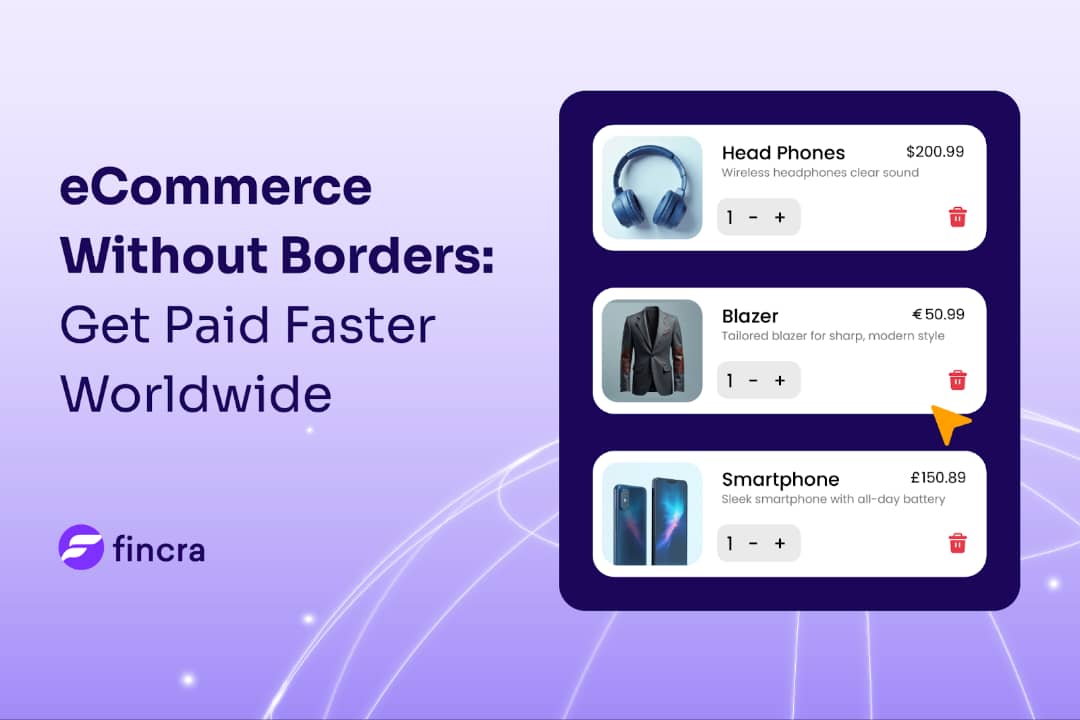
Whether you sell in Lagos or Nairobi, customers want local ways to pay. Let shoppers check out in their local currency, using cards, bank transfers, or mobile money. Set up seamless payments for your global online store with Fincra today.
Telecoms
ntel 2.0 to debut in 2026 following a mystery fundraise
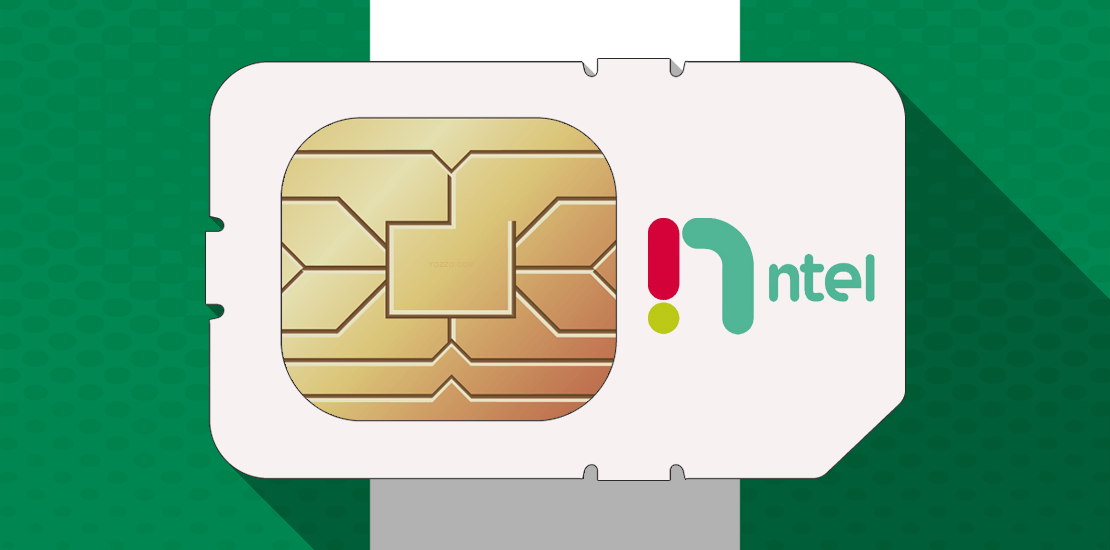
ntel is up to something : After years of struggling, ntel, the telecom brand owned by NatCom Development & Investment Limited (NATCOM), will be re-entering the telecom scene in Q1 2026, backed by an undisclosed fresh capital. This funding, engineered by the Asset Management Corporation of Nigeria (AMCON), is part of a broader effort to revive the once-promising operator from financial distress without repeating the same mistakes that sent it offline in the first place.
: After years of struggling, ntel, the telecom brand owned by NatCom Development & Investment Limited (NATCOM), will be re-entering the telecom scene in Q1 2026, backed by an undisclosed fresh capital. This funding, engineered by the Asset Management Corporation of Nigeria (AMCON), is part of a broader effort to revive the once-promising operator from financial distress without repeating the same mistakes that sent it offline in the first place.
How did ntel get here? It all started with the collapse of its predecessor, Nigerian Telecommunications Limited (NITEL). NITEL failed to keep up with the privatisation of Nigeria’s telecoms sector, and was eventually sold and rebranded as ntel in 2015. It seemed the failure was embedded in the roots because by the 2020s, ntel was saddled with debt and had to sell off over 2,000 tower assets to pay off some of its obligations.
With AMCON’s takeover in 2023, ntel aimed not to identify itself with the old NITEL culture of bureaucracy and strive for innovative plays like network optimisation.
“Allow me to reintroduce myself?” ntel is testing a hybrid model in its reboot. It wants to act as part mobile virtual network operator (MVNO) and part infrastructure provider to stretch its assets (and usefulness). This new mystery fund will allow ntel to rebuild its network and restore both data and voice services.
Zoom out: If we’re using the operator’s past to predict its future, one may question if AMCON can build a profitable telco before it hands over the reins, especially since MTN and Airtel hold a combined market share of 85% in Nigeria’s telecoms sector. The billion-dollar question on everyone’s mind is: has the shadow of NITEL’s failure finally lifted from ntel?
Paga is in USA

Big news! Paga is now live in the United States, with digital banking services designed for Africa’s diaspora! Eligible users can send, pay, and bank in US Dollars & Naira, safe, regulated, and borderless. Learn more.
Banking
AfriGo card swipes have processed $48 million in 2025 so far
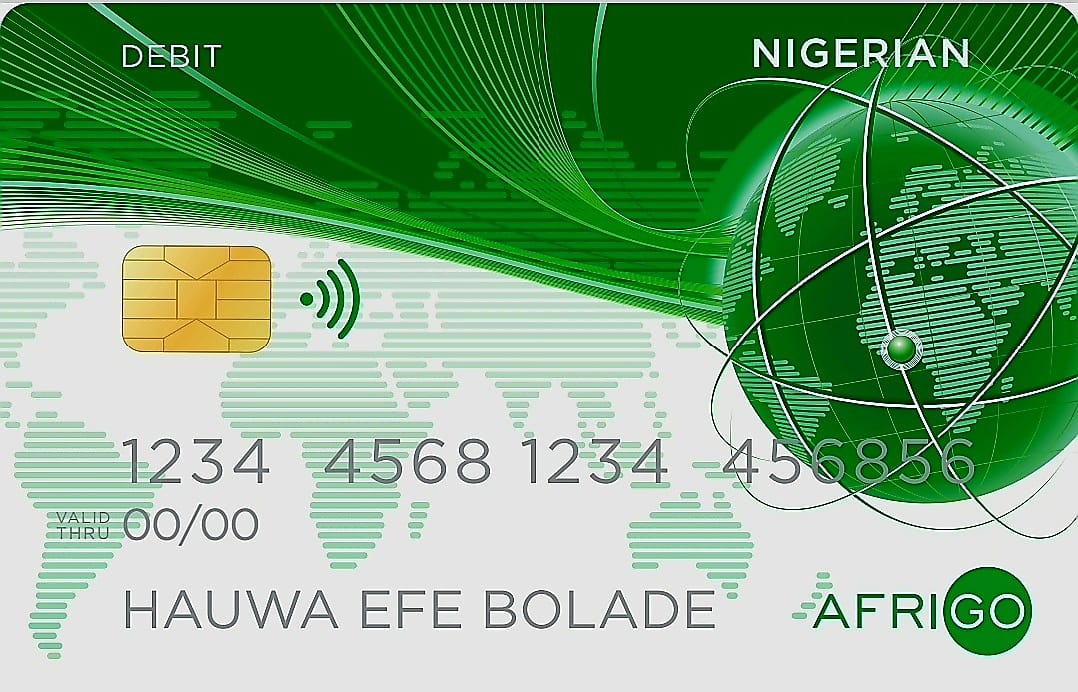
If you’ve swiped an AfriGo card—the one the Nigeria Interbank Settlement System (NIBSS), the country’s payment switch, launched in partnership with the Central Bank of Nigeria (CBN)—then you’re part of the ₦70 billion ($48 million) in transactions the card scheme has processed this year alone.
Catch up: AfriGo was introduced in January 2023 as Nigeria’s national card scheme, but adoption stayed modest through 2024. Banks moved slowly as they worked through integration issues and waited for stronger infrastructure. This year, merchant settlements became faster, card issuance simpler, and partnerships with fintechs such as PalmPay and Moniepoint expanded reach, helping AfriGo find its footing across retail and digital payments.
State of play: Access Bank, First Bank, Zenith, Stanbic IBTC, Wema, Unity, Sterling, and UBA now issue AfriGo cards. Fintech distributors are helping move millions of cards into the market. Instant settlement features and cash-back promotions have made AfriGo appealing to merchants and everyday users who prefer lower-cost local payments.
Between the lines: AfriGo’s real contest is at home with Verve, the Interswitch-owned card scheme that has long dominated domestic transactions. AfriGo relies on local infrastructure and its CBN partnership, which allows payments to settle in naira and keeps transaction data within Nigeria. In the wider card space, global players like Visa and MasterCard still hold ground for travel, international shopping, and e-commerce.
The big picture: With strong momentum like this, AfriGo could become the everyday card for Nigerian consumers, built, processed, and trusted at home.
Paystack introduces Pay with Bank Transfer in Ghana
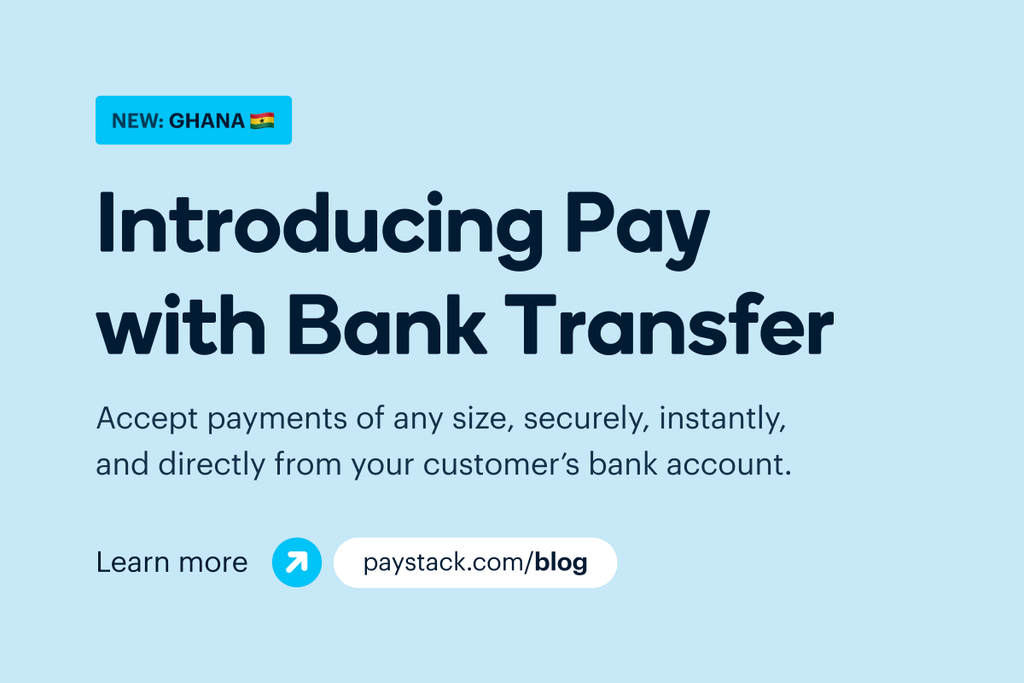
WithGhanaian businesses can now accept secure, instant bank transfers on Paystack. Learn more here →
Comapnies
SABC might be cutting jobs

The South African Broadcasting Corporation (SABC) is facing yet another financial storm.
Insiders say the broadcaster may have to lay off staff after losing revenue from radio advertisements. Why? Over 800 paid adverts didn’t air in August across 18 radio stations because presenters reportedly skipped the commercials, forcing the SABC to refund clients.
The ad skips are one part of the headache. The SABC’s funding lifeline, TV licences, have been on life support since 2019 because operators simply refuse to pay up. In its annual report for the 2024/25 financial year, the broadcaster billed operators almost $290 million, but collected just $44 million—or 15% of the amount it billed. This might have been the reason behind the operator’s report of a $14 million operating loss.
What it all means: SABC’s survival is now hanging on BMI TechKnowledge, a market research company that has been hired to design a new funding model before the old TV licensing model collapses.
Why does it matter? The SABC is arguably the country’s largest source of local news, culture, and language diversity. If it crashes, South Africans may lose a public voice that reaches where private media often doesn’t. A weakened SABC means fewer platforms for underrepresented voices.
 Flash Sale: 25% Off Moonshot Tickets
Flash Sale: 25% Off Moonshot Tickets 

For a limited time only, you can save your seat at Africa’s biggest tech gathering with an exclusive 25% discount. On October 15 & 16, the Eko Convention Centre in Lagos will host founders, investors, policymakers, creatives, and operators shaping Africa’s innovation economy. Moonshot 2025 will feature deal rooms, investor lounges, immersive exhibitions, and the TC Startup Battlefield. Moonshot 2025 is designed for real connections and lasting impact. This offer ends soon.
 Secure 25% off your Moonshot ticket now. Get tickets.
Secure 25% off your Moonshot ticket now. Get tickets.
COOL STUFF! 
We like tech that makes good habits pay off.
Egypt’s Bekia is doing just that—rewarding people for cleaning up. The startup lets users exchange recyclable waste—like plastic bottles, cans, and old electronics—for digital points. Those points can then be swapped for groceries, mobile data, or even school supplies.
With over 100,000 users already on board, Bekia is turning recycling into a rewarding routine. In Cairo, where waste management has long been a headache, Bekia is proving that sustainability sticks better when there’s a little incentive to clean up.
Shout-out to Alaa Afifi and his team.
CRYPTO TRACKER
The World Wide Web3
Source:

|
Coin Name |
Current Value |
Day |
Month |
|---|---|---|---|
| $124,514 |
+ 0.85% |
+ 12.59% |
|
| $4,721 |
+ 4.55% |
+ 10.03% |
|
| $2.99 |
+ 1.01% |
+ 6.06% |
|
| $234.61 |
+ 1.52% |
+ 15.73% |
* Data as of 06.45 AM WAT, October 7, 2025.
Events
- Bigger, bolder, and more intentional. Following the resounding success of the inaugural summit in 2024, Growth Padi is thrilled to announce Growth Africa Summit 2025 (GAS 2.0) with the trailblazing theme: “Redefining the Growth Playbook.” Set against the backdrop of a fast-evolving entrepreneurial landscape, this year’s summit will challenge outdated strategies and usher in a new wave of radical, resilient, and relevant growth models tailored for African businesses. Register to attend by November 1.
- Got a startup story worth telling? My Startup in 60 Seconds is TechCabal’s one-minute spotlight for founders to share their journey, from vision and challenges to major wins. It’s more than just visibility; it’s a chance to reach investors, potential customers, and Africa’s wider tech ecosystem. Be featured in My Startup in 60 Seconds or explore other TechCabal advertorial opportunities and let the ecosystem hear your story. This is a paid opportunity.
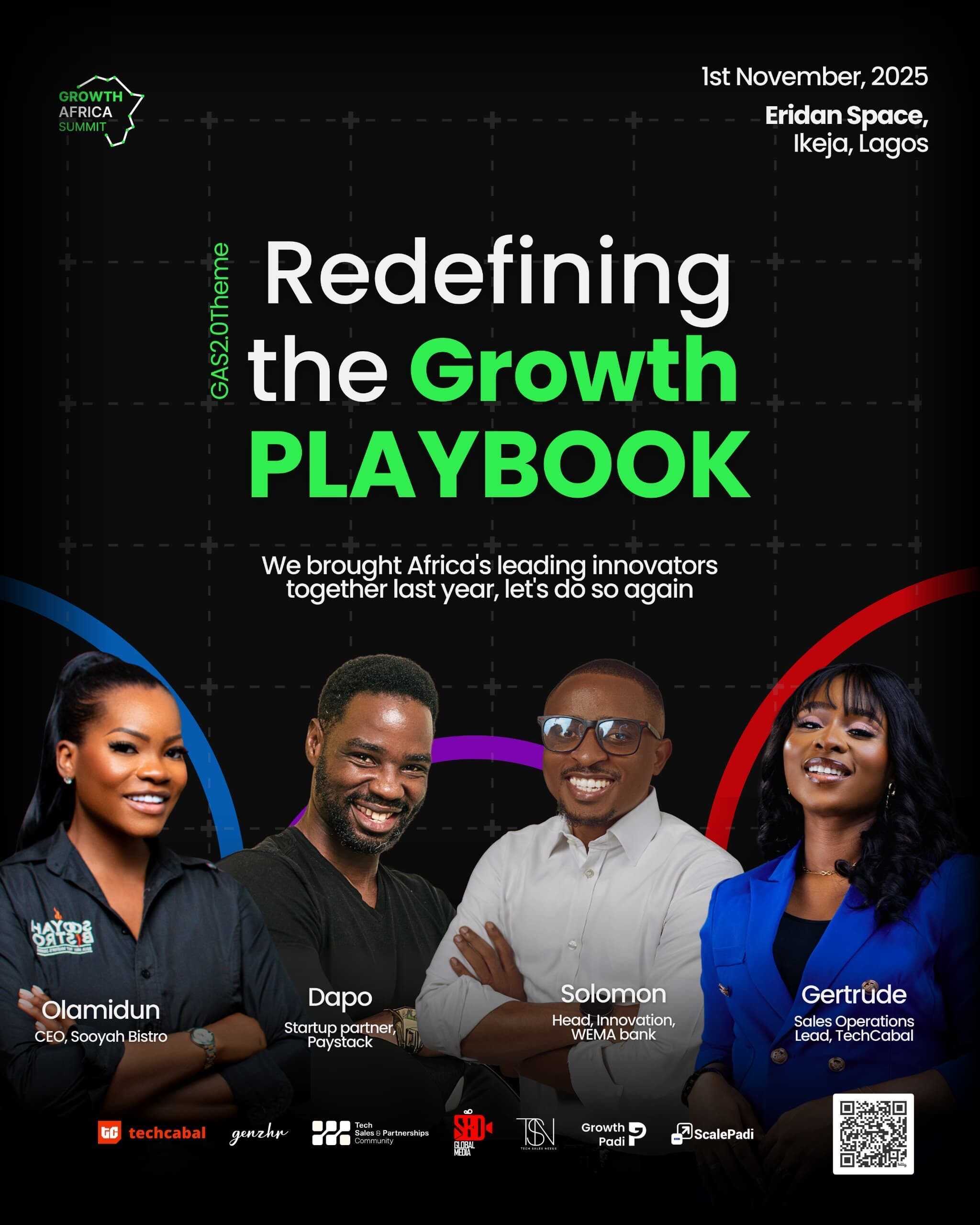

Written by: Emmanuel Nwosu and Opeyemi Kareem
Edited by: Ganiu Oloruntade
Want more of TechCabal?
Sign up for our insightful newsletters on the business and economy of tech in Africa.
- The Next Wave: futuristic analysis of the business of tech in Africa.
- TC Scoops: breaking news from TechCabal
- TNW: Francophone Africa: insider insights and analysis of Francophone’s tech ecosystem
P:S If you’re often missing TC Daily in your inbox, check your Promotions folder and move any edition of TC Daily from “Promotions” to your “Main” or “Primary” folder and TC Daily will always come to you.

from TechCabal https://ift.tt/fMSHEwz
via IFTTT




Write your views on this post and share it. ConversionConversion EmoticonEmoticon